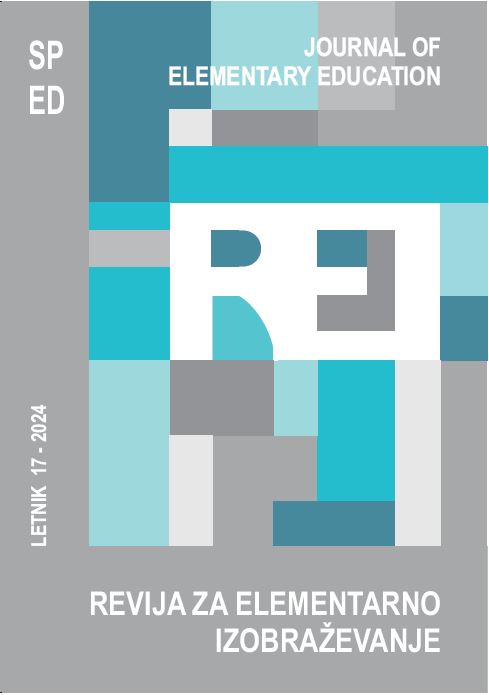Multilingual Memory of Migration - A Participatory Oral History Project in Austria
DOI:
https://doi.org/10.18690/rei.4571Keywords:
migration, multilingualism, participatory research, Oral History, intergenerational.Abstract
The article lays out the method of the participatory Oral History project “Multilingual Memory of Migration” against the political background of an unacknowledged Austrian migration history and the political paradigm of monolingualism. The participatory concept engages students in a research process of Austrian migration history, addressing especially (but not exclusively) students with an own migration and multilingual background to conduct intergenerational biographical interviews. By benefitting from the students’ language skills and community outreach, the project aims at creating a contribution to a national “archive of migration” as such not institu–tionalized in Austria.
Downloads
References
Archiv der Migration (n.d.). Accessed 2024, April 2, http://archivdermigration.at/de/projekt/intro
Bakondy, V. (2017). “Austria Attractive for Guest Workers?” Recruitment of Immigrant Labor in Austria in the 1960s and 1970s. In G. Bischof & D. Rupnow (Eds.), Migration in Austria (pp. 113–138). University of New Orleans. https://www.jstor.org/stable/j.ctt1t89kvv.5
Busch, B. (2013). Mehrsprachigkeit. UTB
Cargo, M. & Mercer, S. (2008). The Value and Challenges of Participatory Research: Strengthening Its Practice. Annual Review of Public Health 29, 325–50. https://doi.org/10.1146/annu–rev.publhealth.29.091307.083824
Cataldo-Schwarzl, L. (2022). Invisible. Inaudible. Marginalised: unique languages in a superdiverse translanguaging-classroom. Journal of Multilingual and Multicultural Development 43(2). https://doi.org/10.1080/01434632.2022.2044831
Council of Europe (1992). European Charta for Regional and Minority Languages. European Treaty Series 148 – Regional or Minority Languages (1992, November 5). https://www.co–e.int/en/web/european-charter-regional-or-minority-languages
De Cillia, R. (2015/16). Spracherwerb in der Migration. Informationsblätter zum Thema Migration und Schule 3, Accessed 2024, March 3, https://pubshop.bmbwf.gv.at/index.php?rex_media_type–=pubshop_download&rex_media_file=272_info3_16_17.pdf
De Cillia, R. (2022). Österreich war und ist ein mehrsprachiges Land: zum Wohle unserer sozialen und wirtschaftlichen Entwicklung. In O. Gruber & M. Tölle (Eds.), Fokus Mehrsprachigkeit. 14 Thesen zu Sprache und Sprachenpolitik: Beiträge aus Österreich und Europa (pp. 166–194). ÖGB Verlag
Dirim, I. (2017). Linguizismus und linguizismuskritische pädagogische Professionalität. Slowakische Zeitschrift für Germanistik (SZfG) 9(1): 7–17. https://wp.sung.sk/szfg-2017-jahrgang-9/
Fleck, E. (2022). Niemals lernt man eine gemeinsame Sprache durch das Verbot der Muttersprache. In O. Gruber & M. Tölle (Eds.), Fokus Mehrsprachigkeit. 14 Thesen zu Sprache und Sprachenpolitik: Beiträge aus Österreich und Europa (pp. 388–404). ÖGB Verlag
Fritz, T. (2022). Einsprachigkeitsideologie: Historisches Hindernis einer offenen, mehrsprachigen Gesellschaft. In O. Gruber & M. Tölle (Eds.), Fokus Mehrsprachigkeit. 14 Thesen zu Sprache und Sprachenpolitik: Beiträge aus Österreich und Europa (pp. 196–214). ÖGB Verlag
Gogolin, I., & Oeter, S. (2011). Sprachenrechte und Sprachminderheiten: Übertragbarkeit des internationalen Sprachenregimes auf Migrant(inn)en. Recht der Jugend und des Bildungswesens (RdJB) 59(1), 30–45. https://doi.org/10.5771/0034-1312-2011-1-30
Herzog-Punzenberger, B. (2011). Leitkultur. In S. Hartwig, F. Kreff, & A. Gingrich (Eds.), Lexikon der Globalisierung (p. 228). [transcript]
Hintermann, C. (2013). Gedächtnislücke Migration? Betrachtungen über eine nationale Amnesie. Zeitgeschichte 3, 149–165
Krumm, H.J. (2010). Mehrsprachigkeit in Sprachenporträts und Sprachenbiographien von Migran–tinnen und Migranten. Arbeitskreis Deutsch als Fremdsprache (AkDaF) Rundbrief 61, 16–24
Krumm, H.J. (2020). Recht auf Sprache: Sprachenrechte sind Menschenrechte. Vortrag im Rahmen der Online-Konferenz zur Menschenrechtsbildung (Pädagogische Hochschule Wien) https://ww–w.Sprachenrechte.at/Krumm_Sprachenrechte-Menschenrechte_Vortrag_2020
Kühberger, C. (2017). Wrong Tracks of Language-Sensitive History Teaching. Public History Weekly 5(3). dx.doi.org/10.1515/phw-2017-8205
Migrationsarchiv (n.d.). Migrationsarchiv der Stadt Salzburg https://www.stadt-salzburg.at/migrati–onsarchiv/
Osmanbasic, A. (2010). Entwicklung des österreichischen Asyl- und Fremdenrechts im Kontext politischen und sozialen Wandels. Master, Karl-Franzens-Universität Graz
ÖVP (2024). Österreichplan https://www.deroesterreichplan.at/
Pührer, J. (2017). Zweisprachige Ortstafeln und territoriale Identitätskonstruktion: Eine Diskursanalyse zum „Ortstafelstreit“ in Kärnten/Koroška. [Master] University of Vienna https://doi.org/10.–25365/thesis.13107
Rathkolb, O. (2005). Die paradoxe Republik: Österreich 1945 bis 2005. Zsolnay
Rupnow, D. (2017). The History and Memory of Migration in Post-War Austria: Current Trends and Future Challenges. In G. Bischof & D. Rupnow (Eds.), Migration in Austria (pp. 37–65). University of New Orleans. https://www.jstor.org/stable/j.ctt1t89kvv.5
Rupnow, D. (2019). Geschichte und Gedächtnis von Migration in Österreich. In S. Grasl-Akkilic, M. Schober, & R. Wonisch (Eds.), Aspekte der österreichischen Migrationsgeschichte (pp. 18–59). [edition atelier]
Seeba, H.C. (2004). The Rhetoric of Origin: Language and Exclusion in Historical Perspective. Transit, 1(1). https://doi.org/10.5070/T711009690
Sparkling Science (n.d.). MEMMIG. https://sparklingscience.at/memmig-en.html
Sparkling Science (2023). 2. Ausschreibung. https://www.sparklingscience.at/de/ausschreibung/2-ausschreibung/ausschreibungsunterlagen.html
Statistik Austria (2023, March 17). Foreign Background. https://www.statistik.at/en/statistic–s/population-and-society/population/migration-and-naturalisation/foreign-background
Thomson, A. (1998). Fifty Years On: An International Perspective on Oral History. The Journal of American History 85(2), 581–595. https://www.jstor.org/stable/2567753
Vaughn, L.M., Jacquez, F. (2020). Participatory Research Methods – Choice Points in the Research Process. Journal of Participatory Research Methods 1(1), 1–14. https://doi.org/10.35844/001–c.13244
Vetter, E., Imamović-Topčić, E. & Cataldo-Schwarzl, L. (2022). Pädagog*innen als game changer? Aufgaben und Wege der Lehrer*innenbildung der Sekundarstufe im Kontext von Mehrsprachigkeit. In O. Gruber & M. Tölle (Eds.), Fokus Mehrsprachigkeit. 14 Thesen zu Sprache und Sprachenpolitik: Beiträge aus Österreich und Europa (pp. 333–360). ÖGB Verlag
Vetter, E. (2022). Linguistic Landscapes in School. In A. Stavans & U. Jessner (Eds.), The Cambridge Handbook of Childhood Multilingualism (pp. 623–648). Cambrigde University Press. https://doi.org/10.1017/9781108669771.034
ZeMiT. Zentrum für Migrantinnen und Migranten in Tirol (n.d.) Accessed 3. 5. 2024, https://www–.zemit.at/
Downloads
Published
Issue
Section
License
Copyright (c) 2024 Georg Traska

This work is licensed under a Creative Commons Attribution 4.0 International License.
